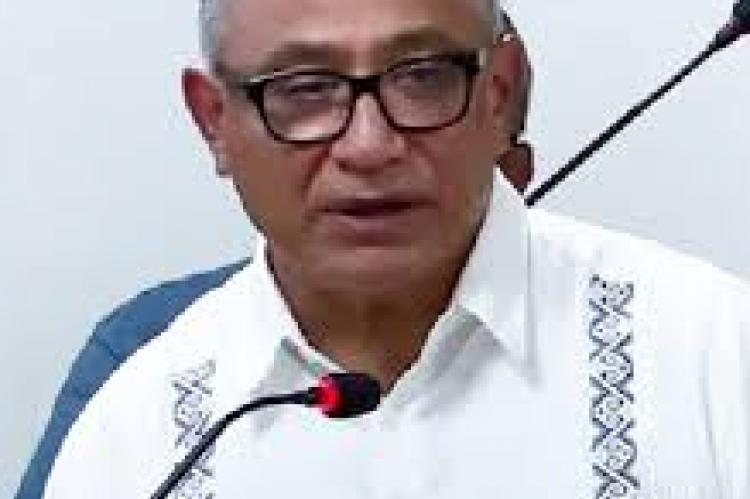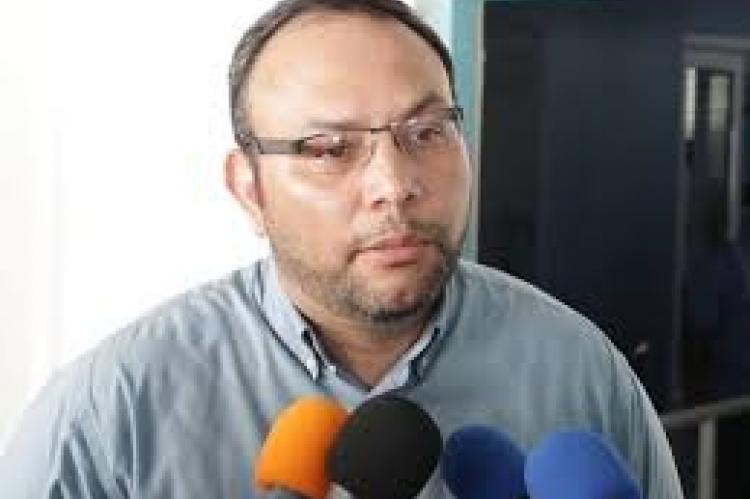A CABINET IN CHAOS: FROM RESHUFFLE TO REBELLION
By: Omar Silva I Editor/Publisher
National Perspective Belize I Digital 2025
Belize City: Sunday 16th November 2025
FROM RESHUFFLE TO REBELLION
What began as a routine Cabinet reshuffle marking the Briceño administration’s fifth anniversary has quickly descended into confusion, denial, and visible cracks within the ruling People’s United Party (PUP).
Earlier this week, Prime Minister John Briceño announced what he called “major ministerial moves” — the headline change being Kareem Musa’s exit from the Ministry of Home Affairs after five years at the helm. Musa’s removal was justified as part of a “broader strategy” tied to the government’s fifth-year milestone. But within days, the reshuffle began to unravel spectacularly.
The Usher Rejection and the Cabinet Crisis
Briceño announced that Henry Charles Usher, the Minister of the Public Service, would assume Musa’s powerful Home Affairs portfolio — a ministry that controls the police, prisons, and national security coordination. But in an extraordinary twist, Usher rejected the appointment, publicly indicating that he preferred to remain in his existing post.
That rejection set off a chain reaction inside Cabinet. The Prime Minister was forced into a second round of emergency deliberations, scrambling to reassign portfolios and restore order. In the meantime, Defense Minister Oscar Mira—already burdened with national defense and border security—was tapped to also take over Home Affairs, effectively merging two of the nation’s most sensitive ministries under one man.
This decision, while portrayed as pragmatic, raised alarm among senior observers. Combining the defense and internal security portfolios under a single minister places extraordinary power in one office, blurring civilian and military oversight and centralizing control in a way unseen since Belize’s independence.
Nepotism or Political Miscalculation?
When asked about the optics of replacing one Musa brother with another, Briceño dismissed the criticism as “rubbish,” insisting that ministers serve policy roles, not technical ones. But his defense only deepened public skepticism.
To ordinary Belizeans, the optics are damning: a Prime Minister rewarding family, loyalty, and inner-circle allegiance over merit and national interest. This sense of nepotism, whether perceived or real, is inflaming long-standing internal resentments within the PUP — particularly among senior ministers who feel sidelined or humiliated by Briceño’s increasingly autocratic style.
The Budna’s Backlash
Compounding the controversy is the lingering Joseph Budna investigation—a politically radioactive case involving cross-border legality, international embarrassment, and police misconduct. Some insiders believe Musa’s removal was not about fatigue, as Briceño claimed, but about damage control.
The Prime Minister’s insistence that the change “was planned long ago” has failed to silence speculation that Musa’s portfolio was sacrificed to protect the administration from further scandal.
Echoes of the G-7 Mutiny
Veteran observers see in this moment a striking historical parallel: the G-7 revolt of 2004, when discontented PUP ministers rebelled against then–Prime Minister Said Musa over financial mismanagement. Ironically, one of the key figures in that mutiny was John Briceño himself, alongside Cordel Hyde, now serving in the same government.
Today, those old fault lines appear to be reawakening. Rumors of a “new G-7 or G-10” coalition of disenchanted ministers are spreading across political circles. Names being whispered include Kareem Musa, Henry Charles Usher, Francis Fonseca, Julius Espat, Michel Chebat, Louis Zabaneh, Ramiro Ramirez, Rodwell Ferguson, Alex Balona, and Ramon Cervantes.
Their growing frustration centers on Briceño’s tight grip over Cabinet decisions, his disregard for consultation, and a governance style that many now describe as centralized, impulsive, and increasingly tone-deaf.
Karma and Control
Observers are calling it poetic justice.
In 1995, a young Briceño helped engineer dissent against the Musa-Fonseca government’s economic mismanagement. Thirty years later, as Prime Minister, he faces the same rebellion from within — the same climate of silenced ministers and party disillusionment he once helped ignite.
Inside sources describe the current atmosphere in Cabinet as tense, even toxic. Ministers who once defended Briceño’s leadership now question whether his continued dominance serves the party’s survival or his own political preservation.
One senior party stalwart confided privately: “Briceno has stopped listening. Everything now revolves around loyalty and control — not policy.”
The Illusion of Leadership
With inflation high, unemployment rising, crime surging, and social services collapsing, Belizeans are growing impatient with political gamesmanship. What was meant to be a show of strength has become a public embarrassment — revealing a Prime Minister fighting fires in his own house while the nation burns around him.
The reshuffle — already retracted, redrawn, and re-spun — now symbolizes a government in disarray.
It exposes the rot at the center of power, where image outweighs integrity and survival has replaced vision.
ANALYSIS: THE POLITICAL AFTERSHOCK
Briceño’s Misstep – The PM underestimated the political consequences of tampering with internal hierarchies. The reshuffle was intended to showcase renewal but exposed division.
Usher’s Defiance – His refusal of the Home Affairs post is unprecedented in Belizean politics. It signals quiet rebellion within the Cabinet.
Mira’s Consolidation – Combining Defense and Home Affairs under Oscar Mira could trigger questions of militarization of governance.
Musa’s Removal – While diplomatically framed, it may reflect internal scapegoating linked to the Budna scandal.
The G-7 Echo – History may be repeating itself — discontented ministers could form a pressure bloc ahead of 2026.
BOTTOM LINE: THE CLOCK IS TICKING
Belize is watching a government implode under its own contradictions.
John Briceño’s promise of “Plan Belize” has devolved into Plan Survival — and the reshuffle meant to mark his political strength has instead marked the beginning of his political decline.
The time bomb is ticking, and if history is any guide, it may detonate not in the opposition’s hands — but within his own Cabinet.
- Log in to post comments


